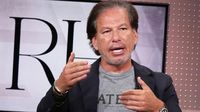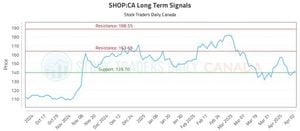RH, the luxury furniture maker formerly known as Restoration Hardware, faced a dramatic plunge in its stock price during its fourth-quarter earnings call on April 3, 2025, coinciding with a significant announcement from U.S. President Donald Trump regarding new tariffs. CEO Gary Friedman’s candid reaction—"Oh really? Oh s---"—captured the shock of investors as RH's shares plummeted over 26% following the news.
The earnings call began just as President Trump unveiled a series of tariffs aimed at major trade partners, which included a staggering 34% retaliatory tariff on China and a 46% tariff on Vietnam. These measures sent RH’s stock tumbling, as nearly three-quarters of the company’s products are sourced from Asian countries, particularly Vietnam and China. In fact, RH reported that 72% of its products come from Asia, with significant portions produced in Vietnam and China.
Friedman noted the immediate impact of the tariffs on RH’s stock price, stating, "I guess, you know, the stock went down, based on some of the numbers we reported, and then it got killed because of…I just looked at the screen. You know, it got hit when I think the tariffs came out." He added that the new tariffs would force companies like RH to adapt to a different business landscape, emphasizing the need for a long-term sourcing strategy to diversify production.
Despite the challenges posed by the tariffs, RH reported a 10% increase in net revenues for the fiscal three months ending February 1, 2025, totaling $812 million. However, this figure fell short of analysts' expectations, which had forecasted $830 million in sales. The company’s adjusted earnings per share came in at $1.58, below the anticipated $1.92. This disappointing performance led TD Cowen to lower its target price for RH from $510 to $220, citing slowing demand.
Friedman acknowledged the broader economic context, noting that RH had been navigating a challenging housing market, which he described as the worst in nearly 50 years. He pointed out that in 1978, 4.09 million existing homes were sold in the U.S. with a population of 223 million, while in 2024, just 4.06 million homes were sold despite a population of 341 million. "It illuminates just how depressed the housing market has been this past year," he remarked.
In the fiscal year 2024, RH reported a 5% increase in net revenues, totaling $3.18 billion. However, net income fell to $107.2 million from $147.4 million in the previous year, as the company invested $2.2 billion into stock repurchases and expanded its portfolio with real estate assets. Looking ahead, RH forecasts revenue growth of 10 to 13% for fiscal 2025, alongside an adjusted operating margin of 14 to 15% and an adjusted EBITDA margin of 20 to 21%.
Friedman expressed optimism about RH's future, stating, "We think RH is in OK shape as it will be able to lean on their vendors given its demand profile and scale, should have some level of pricing power given a wealthier shopper, and is already sitting on excess inventory to support demand." He also noted that RH would continue its expansion with new openings planned in Paris this year, and in London and Milan in 2026, focusing on building hospitality experiences to accelerate growth in Europe.
As analysts weigh the implications of the new tariff regime, they highlight that RH is not alone in facing these challenges. Other home decor and furnishing businesses are grappling with similar issues, as the tariffs are likely to increase production costs and ultimately affect consumer prices. Friedman remarked, "I know most of the businesses pretty well, so we're all in the same boat."
In a letter to shareholders, Friedman invoked a quote from President Theodore Roosevelt’s speech at the Sorbonne in 1910, stating, "If it means that ‘Our place shall never be with those cold and timid souls who neither know victory nor defeat’ then put us in that arena. Onward Team RH." This reflects the company’s determination to navigate the turbulent waters of the current economic landscape.
Amidst the uncertainty, the furniture market is expected to see significant shifts as companies adjust to the new tariffs. The panelists at a recent TD Cowen talk emphasized that playing offense will require collaboration among manufacturers, retailers, and customers. As the market adapts, the impact of these tariffs on everyday goods remains to be seen, with consumers likely to bear much of the cost.
In summary, RH's fortunes have taken a hit due to a combination of disappointing earnings and the fallout from new tariffs announced by the Trump administration. As the company strives to reposition itself in a challenging landscape, its CEO remains optimistic about future growth and the strategic adjustments needed to thrive.








